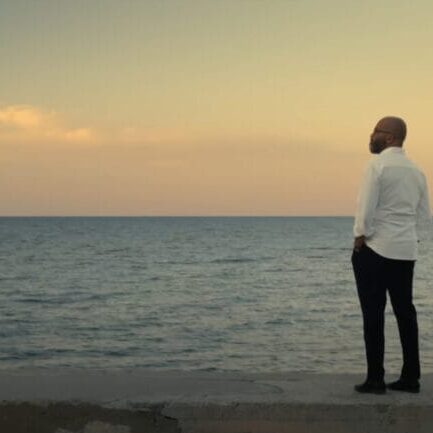
American Fiction
The film explores the moral dilemmas that some Black creators face
Welcome to Film Thoughts, my column on all things film. Every two weeks, I’ll share my titular Thoughts on Film. Sometimes, like this week, I’ll go longer on one particular movie, sometimes I might write about several films, sometimes I’ll share thoughts on old movies I’ve just watched for the first time and sometimes I’ll write about my all-time favourites that I think everyone should see at least once.
For this week’s Black History Month issue, I was happy to write about one of the biggest films of 2023, American Fiction.
On Tuesday, Jan. 23, American Fiction (2023) collected five Academy Awards nominations, getting a nod for Best Picture, Best Actor in a Leading Role, Best Actor in a Supporting Role, Best Adapted Screenplay and Best Original Score. It’s an impressive showing for Cord Jefferson’s directorial debut and earns Jeffrey Wright his first (long-deserved) Oscar nomination.
The adaptation of Percival Everett’s 2001 novel Erasure tells the story of Thelonious Edison (Wright), referred to in the film as “Monk,” a novelist and professor.
American Fiction quickly reveals itself to be a satire about the kind of stories the publishing and film industries deem palatable for audiences. It’s not just that “Black stories” have to fit within a certain set of parameters, but that established Black storytellers are often not permitted to tell “non-Black stories.”
What may seem implicit to the average culture consumer becomes explicit in American Fiction: white executives want Black stories about crime, poverty, violence and slavery. They will sideline Black characters in favour of Black caricatures. The narrow confines into which the powerholders, both in this film and in real life, usher Black stories are well-defined.
Reckoning with the rejection of his recent novel, Monk encounters the success of Sinatra Golden (Issa Rae), a fellow author, at her seminar at a book convention. He believes that she is pandering to the tropes and stereotypes that he rejects with her bestseller We’s Lives In Da Ghetto. His contention is supported by Jefferson’s framing of the largely white audience’s standing ovation as the event wraps.
After being placed on leave from his professorial position and having his most recent novel rejected by publishers, Monk returns home to his sister (Tracee Ellis Ross) and mother (Leslie Uggams) in Boston.
Instead of finding comfort, however, he is launched into further chaos. Tragedy, diagnosis and identity crises abound as Monk comes to bear the financial (and emotional) strain placed on his family. He finds levity (until he doesn’t) when he strikes up a relationship with neighbour Coraline (Erika Alexander).
Part of the success of American Fiction comes from Jefferson’s ability to weave together the stories of Monk’s two lives: that of a writer and that of a brother and son. He isn’t on two disparate journeys but two parallel paths. Both require him to reckon with who he is and demand that he decide if that is who he ought to be.
Eventually, with Golden’s success in mind, Monk flippantly writes My Pafology under the pseudonym Stagg R. Leigh, a novel rife with the expectations that the industry has placed upon him as a Black writer.
It is, of course, immediately snapped up by publishers for the handsome sum of $750,000 and later optioned by a film producer (Adam Brody) whose current project is titled Plantation Annihilation.
Underneath the central thesis of the movie, the aforementioned critique of publishing and production, is the more interesting quandary: given these circumstances, what is a Black creative to do?
Should Monk sacrifice his integrity as a writer and as a Black man, to afford health care for his ailing mother? Viewers follow Monk as he considers his options, but it never feels judgemental. American Fiction remains a compassionate portrait and easy-to-understand satire.
It’s not a coincidence that the first meeting Monk has with white publishers is not so different from the last one he has with a white producer. Any viewer expecting redemption for those characters has sorrowfully misunderstood the film’s message.
What else I’m watching
High Life (2018): Robert Pattinson and Mia Goth star as death row prisoners from Earth who are chosen to serve their sentence in space in the name of science. This bleak portrait of humanity is told in a non-linear fashion and, while disturbing, is a fairly digestible space thriller with a memorably insane performance by Juliette Binoche.
Mean Girls (2024): Let me start by saying that I don’t really have any relationship to the original Mean Girls (2004) movie. Despite my ambivalence to the source material, I had a great time at the 2024 musical remake of the film and thought the music was great. Check it out! It’s so fetch!
Killers of the Flower Moon (2023): Best Actress nominee, Lily Gladstone, is being appropriately lauded for her work in this 2023 film. If you manage to get through the 206-minute runtime (you should), check out Gladstone’s equally impressive work in The Unknown Country (2022).






